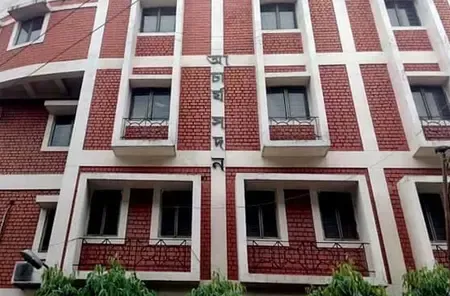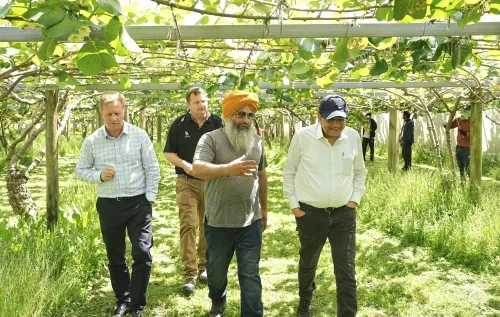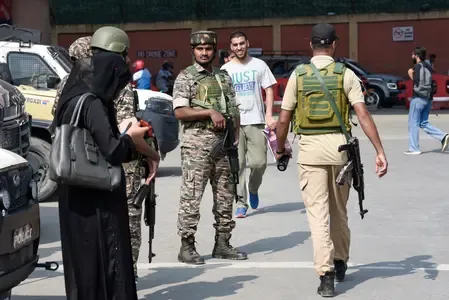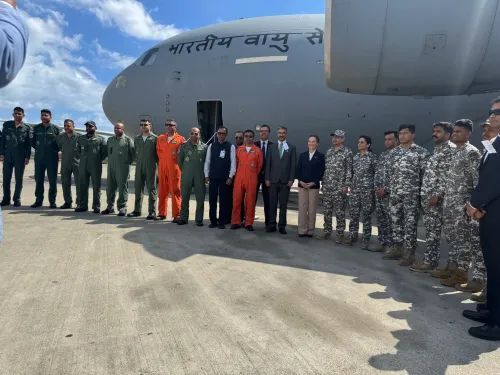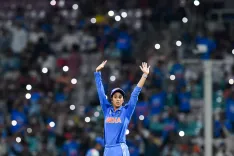How is Indonesia Committed to Strengthening Global Islamic Cooperation for Harmony?
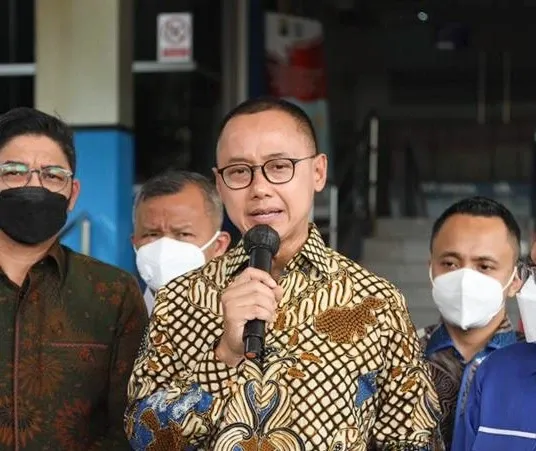
Synopsis
Key Takeaways
- Indonesia is committed to global peace.
- Strengthening cooperation among Islamic countries is essential.
- Joint efforts against terrorism are crucial.
- India seeks Indonesia’s support in the OIC.
- Collaboration with think tanks is vital for policy formulation.
Jakarta, May 29 (NationPress) Indonesia’s People’s Consultative Assembly's (MPR) Deputy Speaker and National Mandate Party (PAN) Vice Chairman, Eddy Soeparno, highlighted Indonesia's dedication to enhancing global collaboration among Islamic nations to foster harmony with the broader international community.
His comments followed a meeting with an all-party parliamentary delegation from India, led by Janata Dal-United MP Sanjay Kumar Jha, alongside Indonesian scholars and researchers from leading think tanks and academic institutions.
In an interview with IANS, Soeparno stated: "We had a productive dialogue with the Indian MPs. Our discussions covered a variety of subjects, particularly regarding the prevention and combat of terrorism. There was a significant focus on strengthening cooperation between India and Indonesia to address terrorist activities. "
He mentioned that India expressed its desire for Indonesia’s backing within the Organisation of Islamic Cooperation (OIC) to highlight issues related to preventing future terrorist incidents.
"Indonesia is devoted to global peace, enhancing collaboration, and nurturing harmony among nations. We will strive to improve global cooperation among Islamic countries and assist in fostering harmony with the wider global community," Soeparno affirmed.
Concurrently, the Indian delegation underscored India’s strong position against terrorism and urged for joint efforts to combat this threat. The delegation made it clear that India would not differentiate between terrorists and the nations that harbor or support them.
The all-party team conveyed India’s zero-tolerance stance towards terrorism and sought Indonesia’s collaboration in exploring effective strategies to tackle the menace, thereby ensuring peace and regional stability.
During the meeting, Jha expressed appreciation to the Indonesian government and President Prabowo Subianto for condemning the April 22 Pahalgam terror attack and for standing in solidarity with the Indian populace. He articulated that such acts of terror are indefensible and must be universally condemned.
"We are collaborating with a leading think tank and academic institutions today, both of which are crucial in shaping counter-terrorism policies. The goal of this engagement is to share India's perspective and strategy to address terrorism, especially that which originates from across the border in Pakistan."
Reinforcing India's unwavering position, Jha stated: "India will not tolerate any form of nuclear blackmail. Those who harbor and support terrorists cannot find refuge behind a so-called nuclear umbrella. Any future terrorist assaults on Indian territory will meet with decisive military actions."
He added that India, along with nations like Indonesia, firmly advocates for zero tolerance towards terrorism.
"To uphold this principle, India will make no distinction between terrorist groups and the states that offer them safe haven," he asserted.
The delegation also included BJP MPs Aparajita Sarangi, Brij Lal, Hemang Joshi, and Pradan Baruah, Trinamool Congress MP Abhishek Banerjee, CPI-M Rajya Sabha member John Brittas, senior Congress leader Salman Khurshid, and former Indian Ambassador to France Mohan Kumar.

